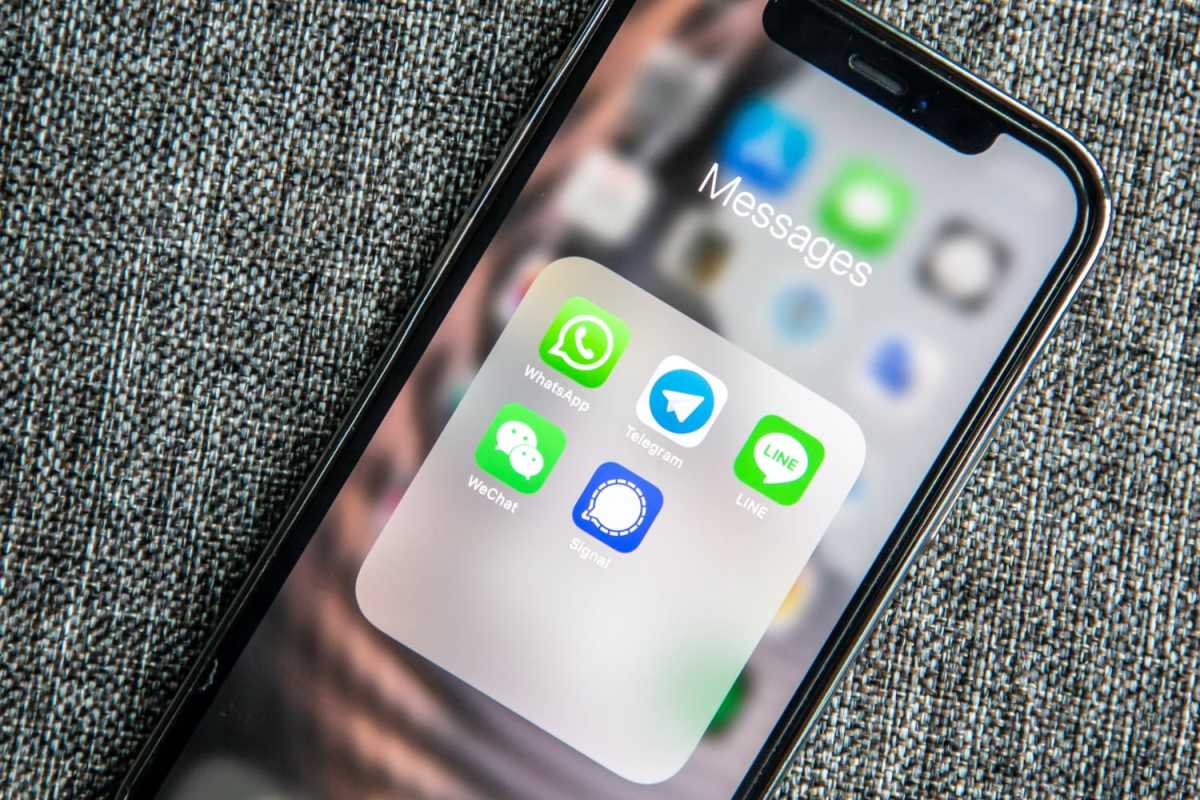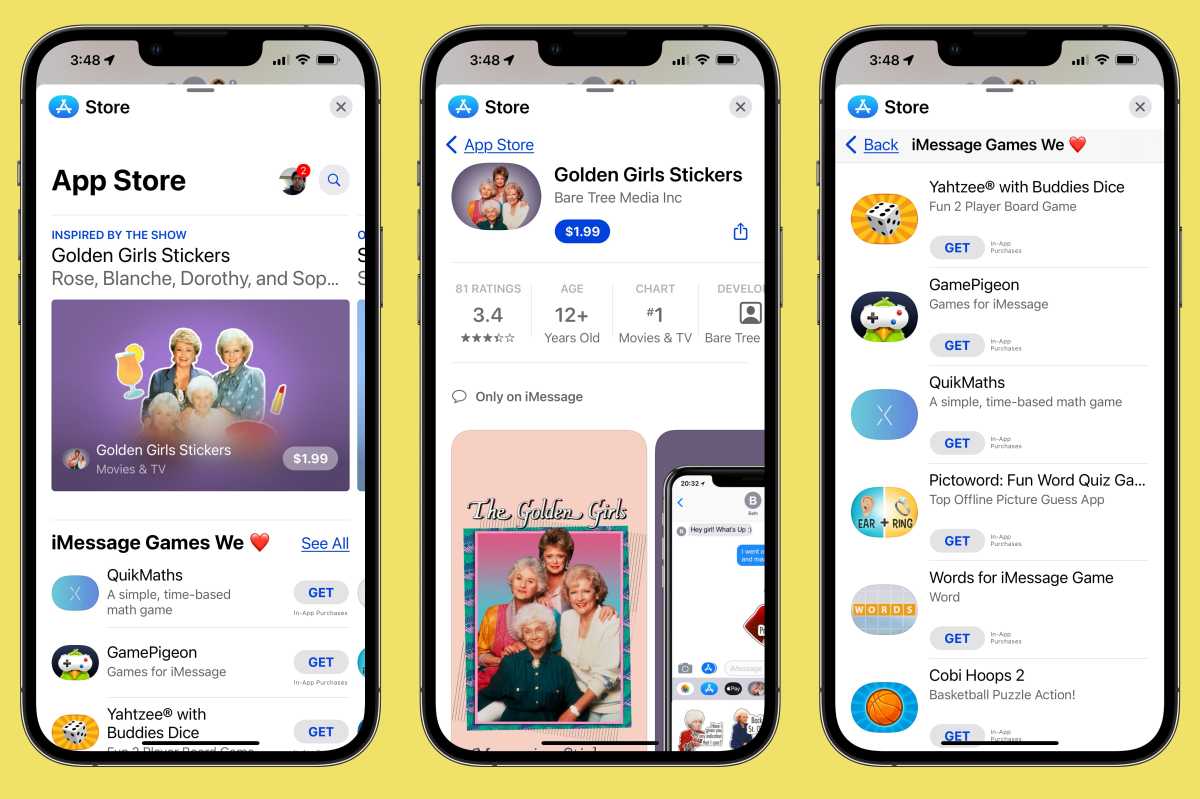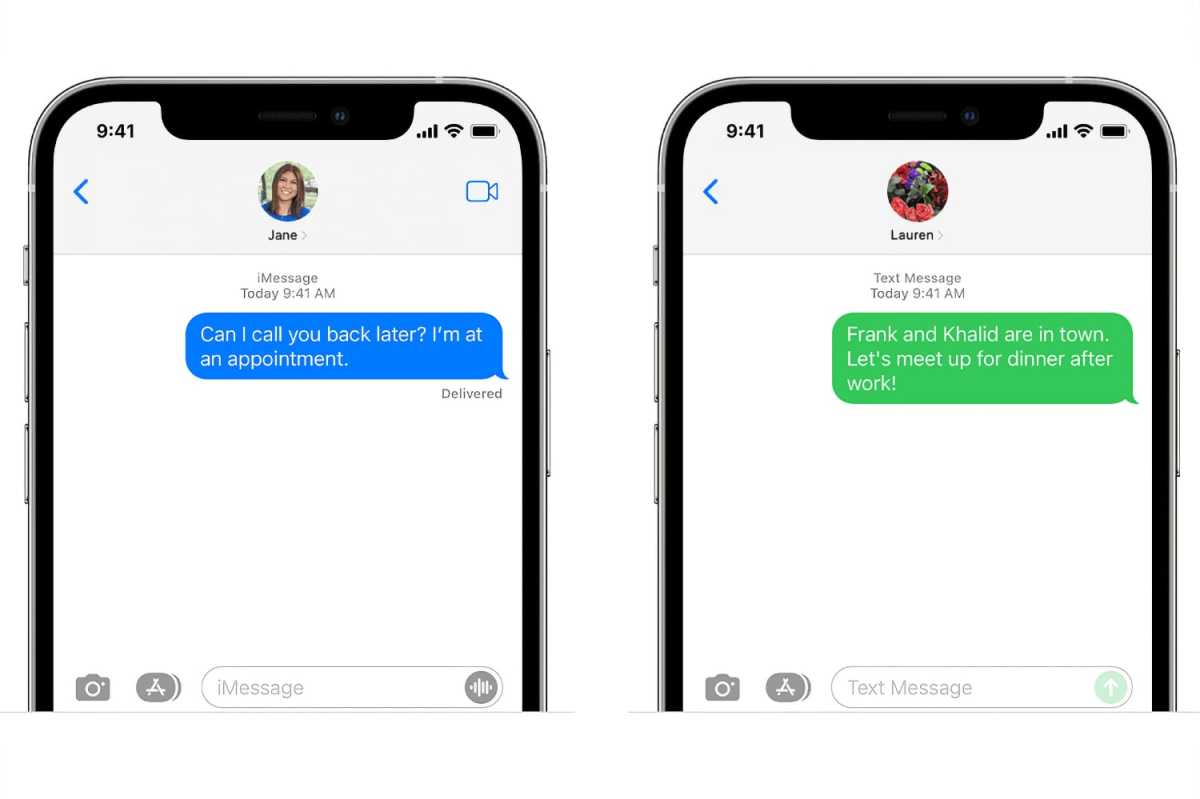A bit more than 10 years after its introduction, iMessage is suddenly a part of the conversation again. A dubious report in the Wall Street Journal implied that the secret to the iPhone’s success with young people is all about peer pressure, with Android-using teens being cast out of social circles owing to their status as non-iMessage green bubbles in group chats.
That article was silly for numerous reasons, as John Gruber explored in detail last week. While blue-bubble FOMO is certainly real, suggesting that it’s the reason people want iPhones is A-grade, uncut “people only buy Apple products because they’re status symbols” kind of delusion.
When you look at the messaging landscape today, iMessage isn’t a colossus that dominates the world. In fact, I’d say that iMessage’s first decade is more of a failure than a success in terms of worldwide acceptance, user experience, and innovation.
The world has spoken
Let’s start with the obvious: the only people having this conversation about iMessage are Americans. In most of the world, iMessage is an afterthought. Platform-agnostic chat apps like WeChat, WhatsApp, and Facebook Messenger dominate, though the particular apps in question vary from country to country.
I’m not sure there’s anything Apple could have done about this. The theory goes that in most countries, people fled traditional text messaging faster than in the U.S., due to more onerous per-message fees–and Apple was just too late to the party. If it had wanted to compete, though, it would have had to create an iMessage app for Android, and it chose not to. People chose other apps.
Since Apple made that choice not to support Android, though, it’s probably safe to say that Apple never actually intended for iMessage to compete for instant-message domination over the rest of the world. Its charter was always a bit more limited. The goal was to change Apple’s operating systems so they were no longer dependent on the ancient, carrier-controlled SMS text message system.

Outside of the U.S., iMessage takes a backseat to chat apps such as WhatsApp and WeChat.
And by that standard, Apple was successful. iPhone (and Mac and iPad and Apple Watch) users basically don’t use SMS, they use iMessage. They use Apple’s servers and leave their carriers out of it. Declaring this a success might seem like a low bar, until you consider what happened to Google. Its attempts to build a chat service have led to one failure after another, which makes the cynical and opportunistic protests of Google executives keying off the Wall Street Journal seem even more arrogant, bitter, and cultish than usual.
iMessage’s role is to provide a solid, end-to-end encrypted service for the Apple ecosystem that (secondarily) can coexist with SMS messages so that iPhones can exchange messages with people who aren’t in Apple’s ecosystem. It works. It’s better than anything Google has attempted. The problem is, it’s not good enough.
Apple’s UX failure
The reason that I consider iMessage more of a failure than success is all about its slow pace of development and poor choices, especially compared with the WhatsApps and WeChats of the world.
The truth is, at some point Apple realized it was competing with those apps. The result was its introduction of the iMessage App Store, which it clearly thought would take the world by storm. It was a flop. Which, fair enough–Apple took its shot and it missed.
The problem isn’t the failure of users to embrace buying pizza inside iMessage chats and turning sticker apps into the next big thing. The problem is that when it flopped, Apple seemed to react with what I’ll charitably call indifference, though it might be more accurate to call it denial combined with inflexibility. Instead of diagnosing the failure and seeing what was next, Apple did what it often does with its failures, which is to leave them to rust away and then make them quietly disappear.
Apple recently introduced replies and mentions to iMessage. They’re… not great? But I appreciate the attempt. I hope Apple is working on new tweaks to improve the experience–but my fear is that it will just walk away from that feature, too, and it’ll sit there being not-quite-right for all eternity.

Apple’s App Store for Messages attempts to provide features found in other messaging apps.
IDG
Which is not to say that Apple hasn’t had its successes with iMessage. Apple Pay Cash (again, only available in the U.S.!) is pretty great, and I use it all the time. And Tapbacks might be Apple’s single best iMessage feature ever.
But even when Apple gets a clear iMessage win, it ends up muddy. Tapbacks are a user-experience problem for people who aren’t on iMessage, one so bad that Google added Tapback translation to Android. And after introducing the feature with six possible emoji-style reactions, Apple has… never touched that feature again. Why not add more reactions? Why not let users tap back with any emoji? Or pick favorites? There’s no answer. Nobody’s home.
What to do with green bubbles
A few years ago, U.S. carriers banded together and created Rich Communications Services (RCS), a replacement to traditional SMS text messaging that Google supports for Android. Apple doesn’t support RCS yet and there’s no indication that they will.
A lot of people believe it’s all part of Apple’s goal to keep the focus on iMessage by degrading the non-iMessage experience as much as possible. And I’ll agree that Apple is probably not prioritizing support for RCS for just that reason. There may also be some technical reasons why connecting the Messages app to RCS may be problematic.
That said, in the long run, Apple should support RCS. No, RCS is not a great standard–it’s a carrier-designed system, based around phone numbers rather than more portable IDs, and it’s not end-to-end encrypted. But RCS is never, ever going to be a replacement for iMessage. It’s a replacement or enhancement for SMS in the Messages app–and on that front, it definitely is an upgrade.

Apple
But in the end, the real reason Apple should support RCS (as a green bubble, or perhaps a new color of bubble) is that it’s a more full-featured protocol that will mean that the experiences of everyone in mixed-platform environments–iPhone and Android users alike–will be better than they are currently. It’s a usability issue on the iPhone, not just on Android.
Then again, given Apple’s intransigence as a steward of iMessage and the Messages app, who knows when it will happen? Even if Apple has already lost to the chat apps and iMessage is successful only as an Apple-ecosystem chat service, it still deserves love. And it’s not getting enough of it.
from Macworld.com https://ift.tt/35g5a6q
via IFTTT





0 Comments